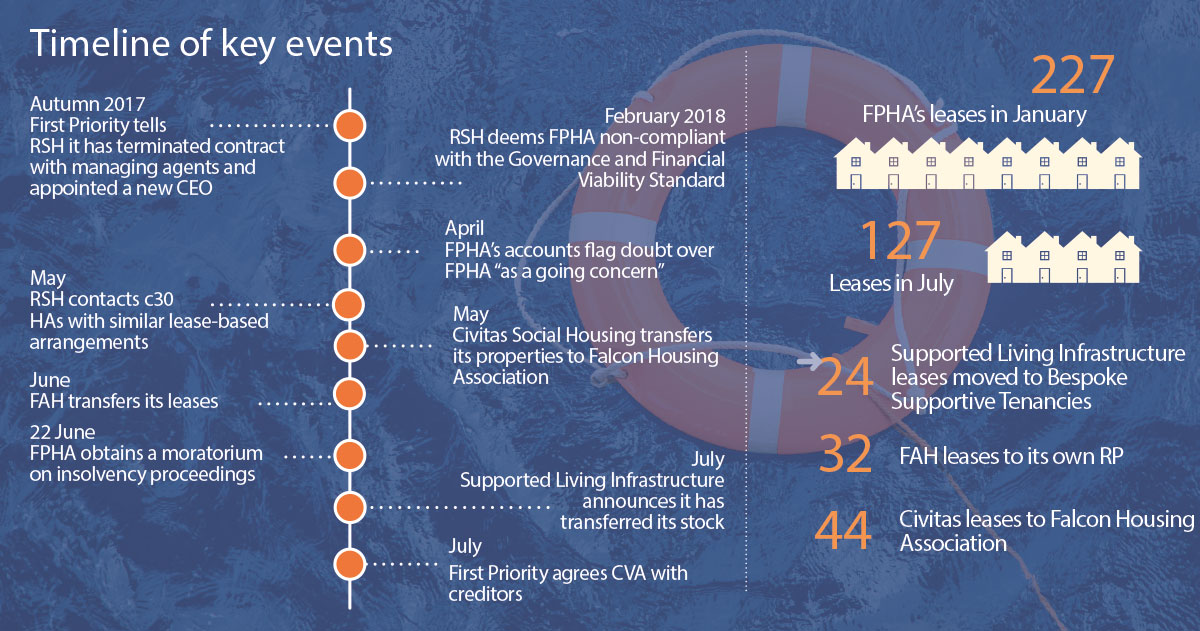The Fundamentals of Corporate Voluntary Agreement: What You Required to Know
The Fundamentals of Corporate Voluntary Agreement: What You Required to Know
Blog Article
Ultimate Guide to Recognizing Company Volunteer Contracts and How They Benefit Companies
Corporate Voluntary Arrangements (CVAs) have actually become a tactical device for businesses aiming to browse financial obstacles and restructure their operations. As business landscape remains to evolve, understanding the complexities of CVAs and exactly how they can favorably impact firms is important for informed decision-making. From supplying a lifeline to having a hard time companies to promoting a course towards lasting development, the advantages of CVAs are multifaceted and customized to deal with a variety of business needs. In this overview, we will discover the nuances of CVAs, dropping light on their advantages and the procedure of implementation, while additionally delving right into essential factors to consider that can make a significant distinction in a company's economic wellness and future potential customers.
Understanding Company Volunteer Agreements
In the world of company governance, a fundamental principle that plays a crucial duty in forming the connection between companies and stakeholders is the detailed mechanism of Corporate Voluntary Arrangements. These contracts are volunteer commitments made by companies to adhere to particular requirements, methods, or objectives past what is legally needed. By participating in Company Voluntary Agreements, firms demonstrate their dedication to social obligation, sustainability, and moral service practices.
One trick element of Corporate Voluntary Agreements is that they are not legitimately binding, unlike regulative needs. Companies that willingly commit to these contracts are still anticipated to support their assurances, as stopping working to do so can result in reputational damage and loss of stakeholder depend on. These arrangements typically cover locations such as environmental management, labor civil liberties, diversity and addition, and area engagement.

Benefits of Business Volunteer Arrangements
Relocating from an expedition of Company Voluntary Contracts' significance, we currently turn our focus to the concrete advantages these agreements provide to companies and their stakeholders (what is a cva in business). One of the main benefits of Corporate Voluntary Contracts is the opportunity for firms to reorganize their debts in an extra convenient way.
Additionally, Corporate Volunteer Arrangements can enhance the business's online reputation and relationships with stakeholders by showing a dedication to addressing financial challenges responsibly. By proactively looking for remedies via voluntary contracts, companies can showcase their commitment to maintaining and satisfying responsibilities count on within the sector. Furthermore, these arrangements can offer a degree of discretion, allowing business to work through financial problems without the public scrutiny that might accompany other restructuring alternatives. In General, Company Volunteer Arrangements serve as a tactical device for business to navigate monetary hurdles while protecting their connections and procedures.
Process of Implementing CVAs
Recognizing the process of implementing Corporate Voluntary Arrangements is necessary for companies looking for to browse financial challenges effectively and sustainably. The initial step in carrying out a CVA entails selecting a qualified insolvency practitioner who will work closely with the firm to examine its financial circumstance and viability. This first evaluation is crucial in figuring out whether a CVA is one of the most ideal solution for the business's monetary troubles. When the decision to wage a CVA is made, a proposal detailing how the firm plans to settle its creditors is drafted. This proposal has to be approved by the firm's financial institutions, that will vote on its acceptance. If the proposition is accepted, the CVA is implemented, and the business needs to follow the agreed-upon payment strategy. Throughout the implementation process, regular interaction with financial institutions and attentive monetary management are vital to the successful implementation of the CVA and the company's eventual financial recovery.
Trick Considerations for Services

Another vital consideration is the level of openness and communication throughout the CVA process. Open up and truthful communication with all stakeholders is important for developing depend on and making sure a smooth implementation of the arrangement. Businesses should likewise think about seeking specialist recommendations from lawful experts or economic experts to navigate the intricacies of the CVA procedure successfully.
Moreover, companies need to analyze the long-lasting implications of the CVA on their track record and future financing opportunities. While a CVA can provide instant alleviation, it is important to examine exactly how it may impact connections with creditors and financiers in the future. By carefully taking into consideration these crucial aspects, organizations can make informed decisions pertaining to Business Voluntary Agreements and set themselves up for an effective economic turn-around.
Success Stories of CVAs at work
Numerous businesses have efficiently have a peek here implemented Business Volunteer Arrangements, showcasing the effectiveness of this financial restructuring device in renewing their procedures. One noteworthy success story is that of Company X, a battling retail chain facing insolvency as a result of mounting debts and decreasing sales. By becoming part of a CVA, Business X had the ability to renegotiate lease arrangements with property managers, reduce overhead prices, and restructure its financial debt responsibilities. As a result, the company had the ability to support its economic position, boost cash money flow, and prevent bankruptcy.
In an additional instance, Firm Y, a manufacturing firm burdened with heritage pension plan liabilities, utilized a CVA to rearrange its pension plan obligations and simplify its operations. Via the CVA procedure, Company Y accomplished substantial price financial savings, enhanced its click for more competitiveness, and protected long-lasting sustainability.
These success tales highlight exactly how Business Volunteer Arrangements can offer struggling companies with a sensible path towards economic recuperation and functional turnaround. By proactively addressing monetary difficulties and restructuring obligations, firms can arise more powerful, more dexterous, and much better positioned for future growth.
Final Thought
To conclude, Corporate Voluntary Agreements provide organizations an organized approach to dealing with economic troubles and restructuring financial obligations. By applying CVAs, firms can avoid insolvency, protect their assets, and keep relationships with lenders. The procedure of executing CVAs entails cautious planning, read review negotiation, and dedication to conference agreed-upon terms. Companies have to consider the possible advantages and downsides of CVAs before making a decision to pursue this alternative. Generally, CVAs have proven to be efficient in aiding companies get rid of monetary difficulties and achieve long-lasting sustainability.
In the realm of business governance, an essential idea that plays a critical role in shaping the relationship in between companies and stakeholders is the complex device of Corporate Volunteer Agreements. cva meaning business. By getting in into Business Voluntary Agreements, firms show their commitment to social obligation, sustainability, and moral organization methods
Moving from an expedition of Company Voluntary Agreements' relevance, we currently transform our interest to the concrete advantages these agreements supply to firms and their stakeholders.Additionally, Company Voluntary Contracts can enhance the firm's reputation and partnerships with stakeholders by demonstrating a dedication to dealing with financial difficulties sensibly.Comprehending the procedure of applying Business Voluntary Agreements is crucial for business looking for to navigate monetary difficulties effectively and sustainably.
Report this page